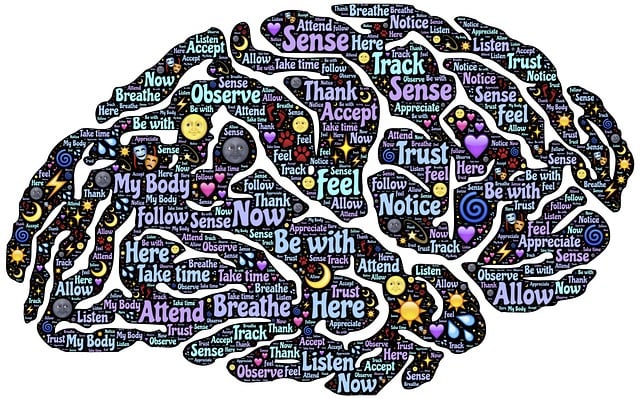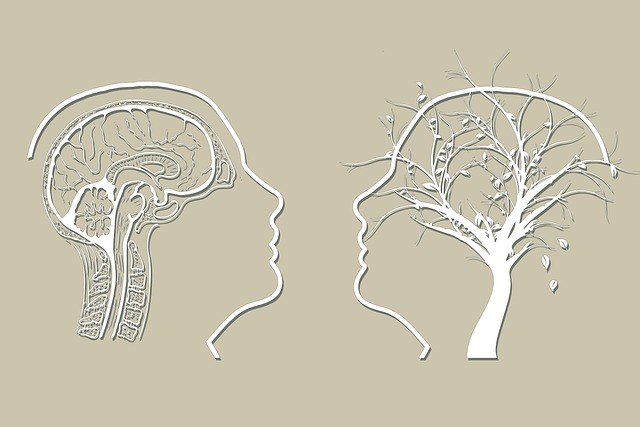Longmont Bipolar Disorder Therapy equips individuals with powerful coping skills to manage their condition effectively. Through techniques like cognitive reframing, mindfulness meditation, and structured routines, patients gain tools to navigate emotional shifts, reduce stress, and improve overall well-being. By understanding personal triggers and building resilience, individuals develop tailored coping strategies that foster better mental health and quality of life in the long term.
In the realm of mental health, coping skills development is a powerful tool, especially for managing bipolar disorder. This article guides individuals in Longmont seeking bipolar disorder therapy through an empowering journey. We explore the significance of coping skills in stabilizing moods and mitigating stressors. By understanding personal triggers and implementing practical daily strategies, readers gain tools to navigate emotional landscapes. Additionally, we delve into building resilience for long-term mental well-being, offering a comprehensive approach to thriving with bipolar disorder.
- Understanding Coping Skills and Their Significance in Bipolar Disorder Management
- Identifying Personal Triggers and Stressors: A Step Towards Empowerment
- Practical Strategies for Daily Coping: Tools to Navigate Moods and Emotions
- Building Resilience: Long-Term Coping Skills for Sustainable Mental Well-being
Understanding Coping Skills and Their Significance in Bipolar Disorder Management

Coping skills are essential strategies that individuals with bipolar disorder can utilize to navigate and manage their mental health effectively. These skills play a pivotal role in Longmont Bipolar Disorder Therapy, offering a proactive approach to mitigating symptoms and enhancing overall well-being. The significance lies in their ability to equip patients with tools to cope with intense emotional shifts, stress, and triggers, thereby improving their quality of life.
In the context of managing bipolar disorder, various techniques can be employed, such as cognitive reframing, relaxation practices, problem-solving strategies, and social skills training. For instance, a Community Outreach Program Implementation focused on mental wellness might introduce these coping mechanisms to foster support networks and promote better stress management. By integrating these skills into daily routines, individuals gain a sense of control, improve their ability to respond adaptively to challenges, and reduce the impact of severe mood episodes.
Identifying Personal Triggers and Stressors: A Step Towards Empowerment

Understanding what triggers our stress and emotional turmoil is a powerful tool for anyone looking to develop coping skills. In Longmont Bipolar Disorder Therapy, this process often involves delving into personal experiences and identifying specific stressors that can be managed or avoided. By recognizing these triggers, individuals gain a sense of control over their mental health journey. For example, someone struggling with bipolar disorder might find that certain people, places, or even times of the year trigger manic or depressive episodes.
Identifying these triggers is the first step towards empowerment; it allows for proactive measures to be taken. This could involve adjusting daily routines, setting boundaries with supportive friends and family, or learning relaxation techniques. Moreover, fostering positive thinking through cognitive behavioral therapy (CBT) and engaging in social skills training can help individuals navigate these stressors more effectively. Emotional healing processes are supported when people understand their triggers, enabling them to build resilience and adapt healthier coping mechanisms.
Practical Strategies for Daily Coping: Tools to Navigate Moods and Emotions

In the journey of managing bipolar disorder, developing practical coping skills is a powerful tool for navigating through mood fluctuations and intense emotions. Longmont Bipolar Disorder Therapy offers a range of strategies to empower individuals in their daily lives. One effective approach is mindfulness meditation, which encourages individuals to focus on the present moment, thereby reducing anxiety and improving emotional awareness. Regular practice can help individuals recognize triggers and develop a sense of calm, even during manic or depressive episodes.
Additionally, maintaining a structured routine and engaging in regular physical activity are valuable coping mechanisms. Structured routines provide a sense of stability and predictability, aiding in stress management. Exercise releases endorphins, which boost mood and reduce symptoms of anxiety and depression. Incorporating these activities into daily life can significantly enhance emotional regulation, offering a natural and accessible way to cope with bipolar disorder symptoms.
Building Resilience: Long-Term Coping Skills for Sustainable Mental Well-being

Building resilience is a crucial aspect of long-term coping skills development for sustainable mental well-being. It involves cultivating a mindset that enables individuals to adapt and bounce back from challenges, stressors, or traumatic events. For those dealing with conditions like bipolar disorder, Longmont Bipolar Disorder Therapy can play a pivotal role in fostering this resilience. Through structured counseling sessions, individuals learn effective coping strategies tailored to their unique needs, enhancing their ability to navigate life’s ups and downs with greater ease.
The process of building resilience goes beyond mere stress management; it involves cultivating empathy building strategies and cultural competency, as these are essential components of strong therapeutic alliances. Healthcare providers equipped with comprehensive training in cultural competency can create safe spaces that foster open communication and understanding, allowing individuals to explore their experiences and develop coping mechanisms that resonate deeply with them. This holistic approach integrates the development of coping skills within a supportive environment, ensuring long-lasting positive outcomes for mental well-being.
Coping skills development is a powerful tool in managing bipolar disorder, offering individuals from Longmont a sense of control and empowerment. By understanding their unique triggers, implementing practical daily strategies, and building resilience, those affected can navigate mood swings effectively and foster sustainable mental well-being. With the right tools, recovery and a improved quality of life are within reach for everyone, regardless of their bipolar journey.











